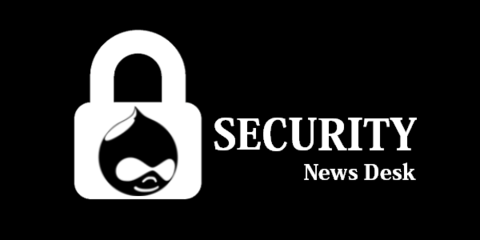If you are a Drupal user and wants to protect your website from hackers and attackers, then you must read this blog. Here, we will share the top 10 tips that can strengthen your website’s security. These tips will ensure your modules and core code are up-to-date with the latest security releases. So, let's begin:
1. Always follow security news
Follow the security news of Drupal on the regular basis in order to get alerts of security updates. In fact, you can also get security advisories from these places:
- Email list – log into Drupal.org, and then go to user profile page and subscribe to the security newsletter on the Edit >> My newsletters tab.
- RSS feeds
2. Use Drush to Update your Website
Download Drupal modules and core from drupel.org and apply them to your Drupal codebase manually. But this gets annoying very quickly. So, if you want to make this a soothing experience, you can use several Drush commands.
You can cross-check what has changed
Pm-update-pipe (alias: up --pipe) : lists projects that need to be updated. Well, you can then go and cross-check the release notes to view what has changed.
You can also run the updates in a single process
Drush pm-update (alias: up) – Update, modules, Drupal core and themes and also install any pending database updates.
3. You should check update report on regular basis
The update report will warn you about the security issues with your website, such as out of date Drupal core, modules, database updates that need to be install.
In fact, you can get notification whenever the updates are available by adding your email address here:
/admin/reports/updates/settings
4. Choose a safe and reliable hosting
No doubt, Drupal is a free and open source CMS platform and can run well on web servers supporting MySQL and PHP database. In fact today, many web hosting companies are adding this tool into their hosting packages to attract Drupal users, but not all of them can give a safe and protected environment. Thus, it will be better for you to select a reliable web host that can reduce hacking frequencies by using some of the cutting-edge technologies such as SSL, SSH, and Firewalls.
5. Regularly Update your Drupal Core
It is important to keep your Drupal core and modules up-to-date. It is because the standard new releases are only evolved and published when all the loopholes have been removed. Once the new version of Drupal is out, the security vulnerabilities of the older version get public. That means the hackers can gain access of your site if your applications and tools are not updated with the latest version.
6. Use CAPTCHA to protect your site
CAPTCHA stands for ‘Completely Automated Public Turing test to Tell Computers and Humans Apart’. It consist some random letters and numbers that are come out automatically for web users to enter. The main purpose of CAPTCHA is to configure whether the user is a human or not. Therefore, webmasters can use it to block spambots.
7. Use Security Modules
Drupal comes with thousands of robust modules that can be used to intensify the security of your Drupal site. The most common module categories are User Access, Spam Prevention, and Security. For that, you need to open Drupal.org to download and install the required modules for the site.
8. Obstruct the Access to your Important Files
You can block the access to some important files, such as upgrade.php file, install.php file, authorize.php file through .htaccess. By following this line of code, you can restrict the access to some sensitive files:
<FileMatch “(authorize|cron|install|updgrade)\.php”> Order deny, allow deny from all Allow from 126.0.0.1 </FileMatch>
9. Secure your Login Operation
The security of login operations is one of the significant parts that webmasters need to consider. If you are a website administrator, then it will be better to restrict the number of invalid login attempts, and also make sure the IP addresses trying to break your password are banned either temporarily or permanently. Well, you can do this by using the most powerful Drupal module, Login security. It is an effective tool that not only restricts access attempts, but also notifies people through email.
10. Back up your Drupal site
It is always better to keep a habit of backing up your Drupal site on regular basis. So, if your site has been destroyed by hackers, you can get back your site with ease. In case, you have done some major changes to your site, then make a backup at once.
Conclusion
In this blog post, we discussed the top then measures that you should take if you want to protect your site from hackers and spammers. By following these handy tips, you can strengthen your Drupal site’s security quickly and easily.
Author Bio: Maggie Sawyer associated with MarkupHQ Ltd., a reputed Drupal Development company that provides PSD to Drupal Conversion Service with 100% guaranteed client satisfaction.
